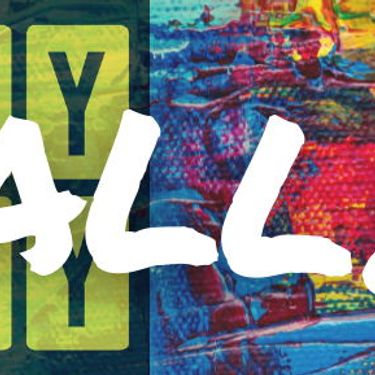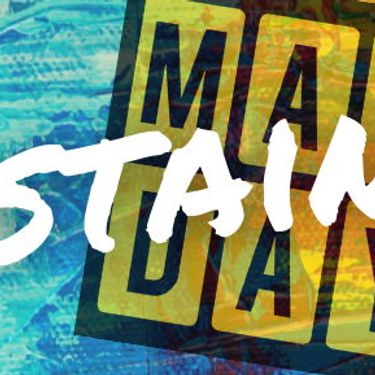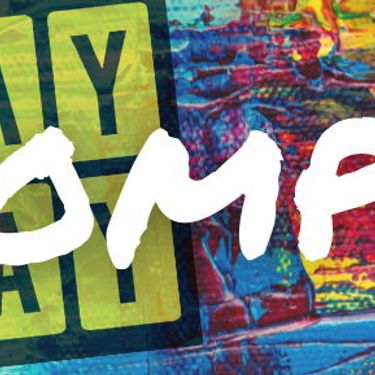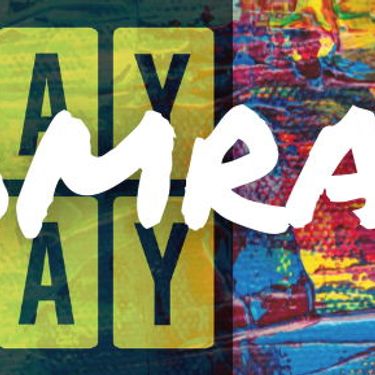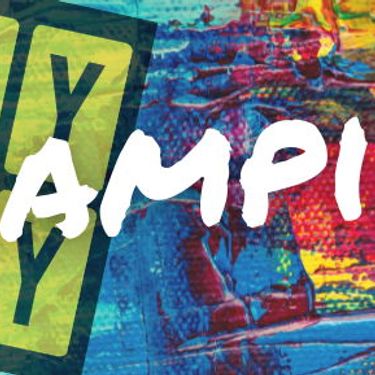PRIMERA Impact Tour: Mayday Space
Up to Free for members
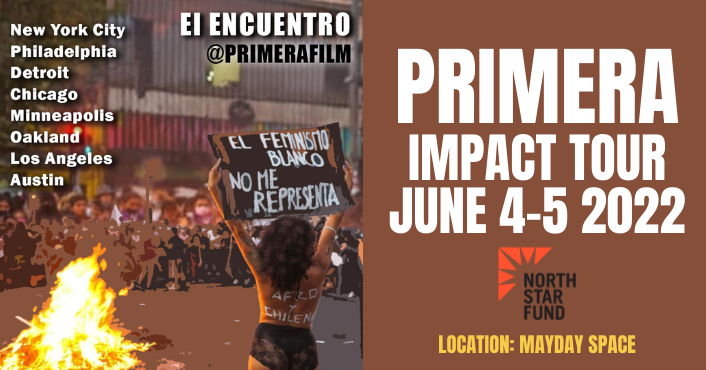
The 2020 Chilean Uprising: A New Constitution Based on Equity, Inclusion and Justice
This program is predominantly in Spanish language. Interpretation will be available
On October 18, 2019 hundreds of high school students in Santiago gathered to protest a proposed public metro fare hike of $.30 pesos. Within hours, President Sebastian Piñera deployed the military to quell student demonstrators. Reports of torture, sexual abuse and death at the hands of the armed forces began to surface the next day. The government’s response was eerily reminiscent of the deadly tactics used by General Pinochet during the dictatorship period of the 70s and 80s. Within three days, approximately two million Chileans staged nationwide protests in support of students. For everyday Chileans, the $.30 pesos came to symbolize 30 years of an unsuccessful neoliberal model designed by US economists that promised economic prosperity with the country’s pivot to democracy in 1990. Instead, income inequality has widened steadily between the rich and the poor. The nation’s wealth has largely remained in the hands of six powerful families, including that of President Piñera.
Over the course of 2020, discontent among Chileans evolved into a nation-wide uprising that calls for an end to income and social inequity. This massive people’s movement demands that a new constitution—driven by principles of equity, inclusion and justice—be written by everyday people. In the face of continued police repression, millions of Chileans took to the streets for nearly a year, never once letting go of their demands for a new constitution. Under relentless public pressure, the government agreed to schedule a historic plebiscite to determine the fate of the existing social contract. On October 25, 2020, Chileans overwhelmingly voted \\\\\\\\\\\\\[80%\\\\\\\\\\\\\] to rewrite their constitution with a plurality of women and indigenous people as its authors.
Program Activities:
Join us for an in-person film screening of PRIMERA, an award-winning documentary film that chronicles the Chilean uprising and the vast network of communities paving the way for a new constitution and a new, more dignified Chile. Featuring a two-day workshop series with Chilean frontline activists immersed in the movement for structural change.
Day 1: Saturday June 4, 2022
Time: 1 pm - 5pm
Location: Mayday Space
Film Screening and Conversation with Chilean Delegation
Day 2: Sunday, June 5, 2022
Time: 11 am - 6 pm
Location: Mayday Space
El Encuentro: Workshops of Solidarity
Workshop #1
Title: Inspiring millions of people to become the architects behind a new constitution
Description:
Within 30 days of the student uprising, organizers galvanized the nation to end systemic inequity by focusing on the root cause: The constitution written during the military dictatorship which centered political and economic power in the hands of the nation’s elite class. This workshop will feature a conversation with frontline activists who organized the campaign and coordinated the mobilization of people and resources from the streets to court houses, to the popular consciousness of the entire nation.
Workshop #2
Title: How do you engage and sustain vast networks of people during a year-long revolutionary process?
Description: Within the last decade an array of movements for gender equity, indigenous sovereignty and immigrant rights have surfaced in Chile. The success of the uprising was in large part a result of an organizing approach that integrated traditional stalwarts such as the student and labor movements with emerging movements among feminist, trans, immigrant and black communities. How were all these factions able to work together while still advocating for the values of their core bases? How will their respective visions for a new Chile manifest themselves in the new constitution?
Workshop #3
Title: Sustainable Tactics of Resistance
Description: Chile’s uprising began on October 19, 2019 on the platforms of Santiago’s metro system and from there it spread across the streets, where networks of demonstrators held ground for nearly a year. In doing so, they were confronted with daily attacks from a militarized police trained by Israeli forces that used war-time weapons to subdue large crowds. Over the course of the uprising, 64 people were killed, 6,000 critically injured, and nearly 500 lost their vision as result of the intentional police tactic or aiming rubber bullets at the eyes of demonstrators. Yet, the movement on the street prevailed by tapping into the experiences of the healthcare providers, student activists and soccer clubs. How were ordinary people able to fend off an aggressive police force? What type of communal defense and preservation strategies were implemented?
Workshop #4
Title: Centering the lives of Chile’s Mapuche and Black communities in a new constitution
Description:
As Chile prepares to draft a new constitution, it must come to terms with its racial past and present. For nearly two centuries the state has struggled to recognize the territorial lands of the Mapuche, a pre-Columbian native population that lives in what is now Southern Chile and Argentina. Similarly, Afro-Chileans and a growing population of black immigrants from Haiti, Dominican Republic, Colombia and Ecuador have reminded Chile of its own role in racial injustice. The constitution writing process must now figure out how to be inclusive of their experiences through direct participation. How will this process center black and brown women in a way that is meaningful and just?
PRIMERA
Campaña de impacto
Título del programa:
El levantamiento chileno del 2020: Una nueva constitución basada en equidad, inclusión y justicia
El 18 de octubre del 2019, cientos de estudiantes de secundaria se reunieron en Santiago para protestar contra un aumento de $.30 pesos a la tarifa pública del metro. En cuestión de horas, el entonces presidente, Sebastián Piñera, desplegó al ejército para aplastar la manifestación estudiantil. Al día siguiente se comenzaron a reportar casos de tortura, abuso sexual y asesinato a manos de las fuerzas armadas. La respuesta del gobierno fue un recuerdo inquietante de las tácticas letales utilizadas por el gobierno dictatorial del general Pinochet durante los años 70 y 80. En solo tres días, aproximadamente dos millones de chilenos realizaron protestas por todo el país en apoyo a los estudiantes. Para el pueblo chileno, los $.30 pesos fueron representativos del fracaso del modelo neoliberal de los últimos 30 años que fue diseñado por economistas estadounidenses con la promesa de que traería prosperidad económica con el giro del país hacia la democracia en 1990. Sin embargo, desde entonces, la brecha económica entre ricos y pobres solo se ha ampliado, y la riqueza de la nación ha permanecido en gran medida en manos de seis familias poderosas, incluida la del expresidente Piñera.
A lo largo del 2020, el descontento entre los chilenos se convirtió en un levantamiento nacional que exigía el fin de la desigualdad socioeconómica y proponía la elaboración de una nueva constitución escrita por la gente chilena, una basada en principios de equidad, inclusión y justicia. A pesar de la continua represión policiaca, y los retos añadidos por la pandemia COVID-19, millones de chilenos salieron a la calle por casi un año, exigiendo incansablemente una nueva constitución. Bajo la presión pública constante, el gobierno acordó programar un plebiscito histórico para determinar el futuro del contrato social existente. El 25 de octubre del 2020, una mayoría contundente —el 80% de los chilenos— votó por reescribir su constitución, ahora con una pluralidad de mujeres y pueblos indígenas como sus autores.
Talleres de trabajo:
Cambio narrativo
Título: Arquitectos de una nueva constitución
Descripción:
Treinta días después del comienzo del levantamiento estudiantil, los organizadores de las manifestaciones instaron a la nación a poner fin a la inequidad sistémica, reconociendo como su causa principal la constitución redactada durante la dictadura militar de Chile, la cual legitimó la concentración del poder político y económico en manos de la élite de la nación. En este taller, los participantes tendrán la oportunidad de conversar con algunos de los activistas de primera línea que organizaron la campaña y coordinaron la movilización de personas y recursos a pesar de la represión policiaca y los retos de la pandemia COVID-19. ¿Cómo evolucionó un movimiento de protestas callejeras hasta convertirse en una ola de poder popular que resultó en la demanda exitosa de una nueva constitución escrita por el pueblo?
Trabajo de coalición:
Título: ¿Cómo movilizar y mantener en lucha a vastas redes de personas durante un proceso revolucionario extendido?
Descripción:
En la última década, han surgido en Chile una serie de movimientos exigiendo equidad de género, soberanía indígena y más derechos para inmigrantes. El éxito del levantamiento del 2020 en gran parte fue el resultado de un esfuerzo de organización que integró los movimientos tradicionales estudiantiles y laborales con los movimientos emergentes feministas, trans, de inmigrantes y de afrodescendientes. ¿Cómo pudieron todas estas facciones trabajar juntas sin dejar de defender los valores fundamentales de sus bases? ¿Cómo se manifestarán sus respectivas visiones en la nueva constitución para así lograr un nuevo Chile?
Ayuda mutua
Título: Tácticas de resistencia sostenibles
Descripción:
El levantamiento de Chile comenzó el 19 de octubre del 2019 en los andenes del metro de la capital y desde allí se extendió por las calles del país, donde las redes de manifestantes lograron mantenerse en pie de lucha durante casi un año. Al hacerlo, se enfrentaron a los ataques diarios de una policía militarizada entrenada por las fuerzas israelíes que usó armas de guerra para someter a las multitudes. En el transcurso del levantamiento murieron 64 personas, 6,000 resultaron gravemente heridas y casi 500 perdieron la vista como resultado de la táctica policiaca de disparar intencionalmente balas de goma a los ojos de los manifestantes. Sin embargo, el movimiento prevaleció, gracias a la ayuda invaluable de paramédicos y doctores voluntarios y la cooperación de diferentes movimientos y grupos desde activistas estudiantiles hasta clubes de fútbol. ¿Cómo pudo la gente común defenderse de una fuerza policiaca tan represiva? ¿Qué tipo de estrategias comunales de defensa y preservación se implementaron?
Una nueva perspectiva
Título: La comunidad mapuche y la comunidad negra en la nueva constitución
Descripción:
Ahora que Chile se prepara para redactar una nueva constitución, debe enfrentarse cara a cara con su propia historia de racismo y exclusión. Por casi doscientos años, el estado ha tenido una batalla interna sobre si reconocer o no las tierras ancestrales del pueblo mapuche, un pueblo originario precolombino que vive en lo que actualmente es la parte austral de Chile y Argentina. De forma similar, los afrochilenos y la creciente población de inmigrantes negros provenientes de Haití, la República Dominicana, Colombia y Ecuador han vivido en carne propia el racismo sistémico. El proceso de escribir esta constitución, el cual ha identificado la dignidad y la equidad como los fundamentos que la guiarán, debe ahora decidir cómo incluirá las experiencias de estas personas a través de su participación directa.
¿De qué manera significativa y justa incluirá este proceso a las mujeres mapuches y negras?
Chilean/ Mapuche Delegation:
Karen Concha: Human rights observer
At the inception of the uprising in October 2019, Karen immersed herself on the front lines, providing tactical defense against Chile’s militarized police forces. Recognizing the importance of documenting police violence, Karen evolved into a Human Rights Observer. She became part of a group called Kullakas, whose members helped document some of the most egregious police attacks against protesters. Karen’s work also includes mutual aid efforts across Santiago’s most impoverished neighborhoods where she delivers hot meals and clothes. Over the past year, she’s led community campaigns to advocate for the release of political prisoners and support their families through mutual aid and legal defense initiatives.
Mery Cortez: Activist, Black Communities in Chile
As a Black Ecuadorian immigrant who raised her family in Chile, Mery encountered many challenges that made her skeptical of Chile's willingness to address racial justice. When her 25 year-old son, Romario Veloz joined the uprising and was consequently shot and killed by the military, she evolved into a fierce activist for racial justice and immigrant rights. In 2020 she honored her late son by launching the Romario Veloz Foundation for the Prevention and Rehabilitation of Drugs and Alcohol.
Jakelin Curaqueo: Scholar and Activist, Mapuche community
Jakelin is the President of The Center for Research and Reporting of the Mapuche Community.
Jakelin has focused much of her activist work on combating the extractivism of the Mapuche lands and the neoliberal policies of the Chilean government that generate inequity. In addition, her educational work addresses the effects of racism and patriarchy on the Mapuche community. Jakekin recently co-authored a book entitled Resistance in the Americas: From Multiculturalism to Racist Backlash.
Walter Fritz: Independent journalist
During the uprising Walter worked as a volunteer
reporter for Señal 3 La Victoria, one of Chile’s most historic independent, community-run media organizations. Over the course of the uprising, Walter volunteered as a human right observer, streaming protests and police activity on a daily basis. He’s been detained and arrested countless times for documenting police abuse. In his home community of La Victoria, Walter is part of a neighborhood collective that prepares 200 weekly meals for local residents and the homeless community.
Nicole Kramm: Independent photojournalist
At the height of the uprising, Nicole was one of first photographers to arrive on the scene, capturing powerful images that would go viral and inspire the nation. Unbeknownst to Nicole, she also became a target of police surveillance. On New Year’s Eve, 2019, as Nicole video documented protesters celebrating on the street, she was shot in the eye at close range by police forces. Undeterred by this traumatic event which caused her to lose vision in her left eye, Nicole resurfaced as an advocate for survivors of state violence. Today, she’s directly involved in the movements to support victims of ocular trauma, defend human rights and sexual diveristy. Nicole is also an active participant in Chile’s Coordinadora 8 de marzo, a vast network of feminst organizations.
Jaime Heunchullan: Spokesperson for the Mapuche community in Temucuicui.
As a former political prisoner who fought for the sovereignty and land rights of the Mapuche people, Jaime has experienced first hand the repressive nature of Chile’s police forces. He has been an outspoken critic of the private sector’s extractivism of natural resources and the state’s cultural appropriation of Mapuche history.
Primera Impact Tour supported by North Star Fund
For inquiries, please email info@maydayspace.org
Covid policy at Mayday: http://maydayspace.org/book/
Please note that we are not wheelchair accessible at Mayday Space - if this is a need that you have, please attend the June 1st PRIMERA film screening at SVA Theatre. For more information: email Gabriela from North Star Fund via gabriela@northstarfund.org

